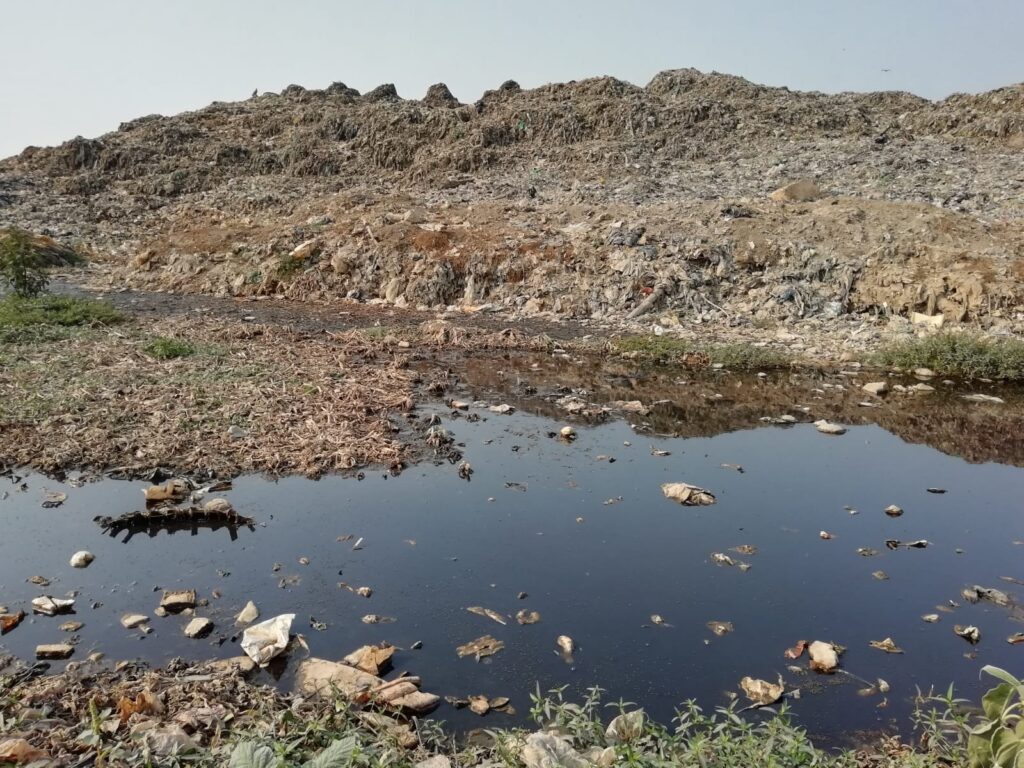Deepor Beel, located southwest of the Brahmaputra River near Guwahati city in the Kamrup Metropolitan district of Assam, India, is an essential wetland. It is the state’s only Ramsar site, designated as the Deepor Beel Wildlife Sanctuary in 2009, and has been an Important Bird and Biodiversity Area since 2003. However, despite these protections, untreated sewage from Guwahati city flows into the wetland via the Bharalu and Basistha-Bahini rivers through the Pamohi canal.
As a natural stormwater reservoir during the monsoon season, Deepor Beel is crucial for Guwahati’s drainage system. Despite its vital role, pollution poses a severe threat, harming local communities’ health and disturbing the environmental balance. Polluted water endangers fishing and agriculture livelihoods, while decreasing biodiversity disrupts traditional practices and limits cultural and recreational opportunities.
Q: Introduce yourself and what is your relation to Deepor Beel?
My name is Pragyan Gautam and I serve as a trainee and young lake manager for the Living Lakes Biodiversity and Climate Project (LLBCP). I work collaboratively with the Nature Environment and Wildlife Society (NEWS) in Guwahati and the Indian Institute of Science Education and Research (IISER) in Kolkata. Our focus is a pilot project on the Pamohi River, an inlet of Deepor Beel, where we are implementing bioremediation techniques to improve the water quality in this flowing ecosystem. Rigorous monitoring efforts in the Pamohi River help ensure that pollution levels are kept to a minimum.
Deepor Beel is a vital ecological site, acting as a global hub for researchers studying climate change, water quality, and habitat restoration. It is recognized as a Ramsar site and stands as one of the largest natural wetlands in the Brahmaputra valley. My role as a young lake manager is to tackle the ecological challenges Deepor Beel faces, employing innovative solutions such as bioremediation and the creation of floating wetlands to enhance its resilience.

Q: Why do you think Deepor Beel needs to be protected/restored?
Deepor Beel is not just any ordinary water body; it’s a treasure trove of life and an integral part of our ecosystem. It provides essential ecosystem services, including water purification, flood control for city dwellers as it acts as a reservoir of water during the monsoon, replenishes groundwater, and supports local livelihoods. Local communities rely on it for fishing and other livelihood activities. Unfortunately, it faces threats such as encroachment, pollution, and habitat degradation.
Local residents, schools, and organizations should actively participate in conservation efforts through awareness campaigns, eco-tours, and educational programs to foster a sense of ownership and pride among the community and to bring recognition and appreciation for the wetland.
Unfortunately, Deepor Beel faces several threats that endanger its delicate balance as it faces the challenge of being a dumping ground for solid waste. Further, government support in terms of policy implementation and enforcement is minimal as earth cutting and unscientific practices are prevalent in the region, and authorities have failed Deepor Beel in every aspect of conservation. Deepor Beel supports a rich diversity of flora and fauna. It is home to numerous bird species, including migratory birds that visit during the winter months. The wetland provides essential habitat for aquatic life, reptiles, and amphibians.
Q: What future do you imagine for Deepor Beel?
I envision a future where Deepor Beel thrives and becomes a focal point for community engagement. I hope for stronger, more robust regulations safeguarding wetlands, buffer zones, and catchment areas, and hence, collaboration between local, state, and national authorities ensures effective management. Through innovative concepts like bioremediation, we can restore its health and ensure its sustainable existence. Deepor Beel should continue to serve as a haven for wildlife, a source of livelihood for local communities, and a place where people can connect with nature as it is also a habitat for diverse flora and fauna.
My vision includes strict enforcement against illegal dumping. Waste segregation, recycling, and waste-to-energy projects transform this issue into an opportunity. Deepor Beel’s rich biodiversity must thrive, and restoration efforts focus on native plant species, fish, and bird habitats. We can create safe zones for breeding and nesting as well as birdwatching platforms and interpretive centers, which will enhance visitor experiences and improve ecotourism in the region. By promoting eco-friendly tourism, organic farming, and responsible infrastructure, we strike a balance. The wetland can become an economic asset while preserving its ecological integrity.
In summary, Deepor Beel’s future lies in a harmonious blend of community stewardship, scientific advancements, and policy-driven conservation. Let’s work together to ensure this wetland remains a haven for biodiversity and a source of pride for generations to come.


